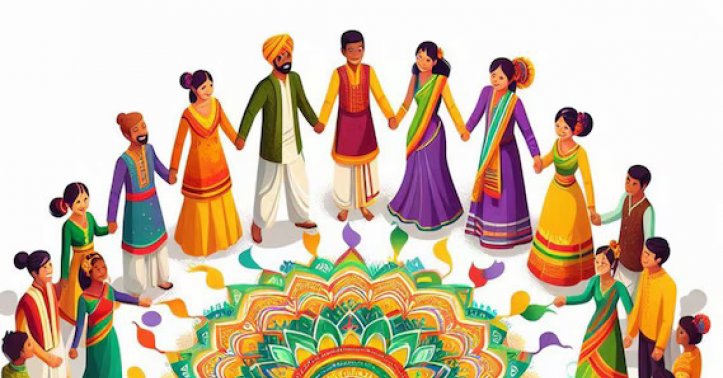
Staying connected to culture
There is always a lot we learn when we main connected to our cultural roots. This makes us have a strong sense of identity and understand all aspects of our upbringing and traditions. This then makes us well rounded and grounded too for it is often confusion about our own roots that create issues with others. To remove this kind of confusion, we all need to remain connected to our cultural roots. Staying connected to your culture can provide a sense of identity, belonging, and continuity. Here are some ways to remain connected to your culture:
1. Learn and Speak the Language
-
Language is a key component of culture. Try to speak, read, and write in your native language or dialect as much as possible. If you're not fluent, take classes or practice with family members.
2. Participate in Cultural Celebrations
-
Engage in traditional holidays, festivals, and rituals. Celebrating cultural events helps maintain a link to your heritage and creates an opportunity to pass traditions to younger generations.
3. Food and Culinary Traditions
-
Food is deeply intertwined with culture. Cooking traditional dishes and passing down recipes helps keep cultural practices alive. Sharing meals with family and friends also nurtures cultural bonds.
4. Dress and Traditional Attire
-
Wearing traditional clothing during special occasions or events is a way to physically manifest your connection to culture. Even in day-to-day life, elements of traditional fashion can be incorporated.
5. Storytelling and Oral Traditions
-
Listen to and share stories, folktales, myths, and histories from your culture. Oral traditions preserve important cultural knowledge, values, and wisdom across generations.
6. Music, Dance, and Arts
-
Make time to understand your culture’s music, dance, and art forms. Learn traditional songs, dances, or craft techniques, which are often an expression of cultural identity.
7. Connect with the Community
-
Be active in your cultural community, whether locally or online. Social groups, community centers, and cultural organizations help keep traditions alive and foster a sense of belonging.
8. Religious or Spiritual Practices
-
Many cultures are tied to specific spiritual or religious practices. Regularly participating in these practices or visiting sacred places keeps you grounded in the spiritual traditions of your heritage.
9. Learn Your History
-
Study the history of your ancestors and your culture. Understanding where you come from, the challenges your people have faced, and their achievements helps create pride and a deeper connection.
10. Teach the Next Generation
-
Passing cultural knowledge, stories, language, and traditions to younger family members or children ensures the survival of the culture. Teaching them about their heritage helps foster a sense of identity in them as well.
11. Engage with Cultural Literature and Media
-
Read books, watch films, listen to music, or follow news related to your culture. This keeps you connected to modern expressions and developments in your cultural context.
Remaining connected to culture is a personal journey and varies from person to person. The key is finding meaningful ways to engage with it that resonate with your own identity and lifestyle.
By Jamuna Rangachari








